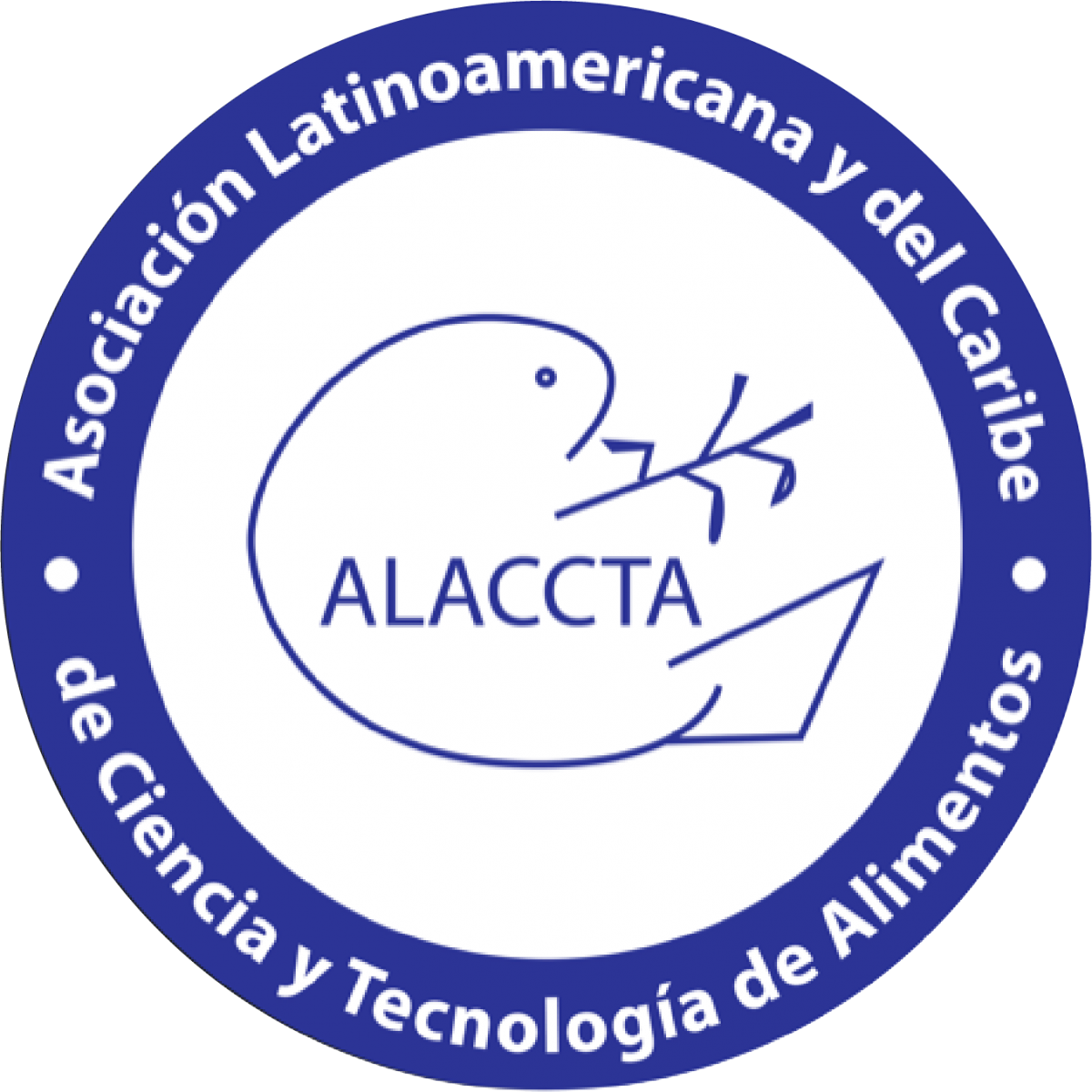
Congratulations to the winners of the four IUFoST scholarships awarded for the best graduate student scientific papers at the SOCHITAL-ALACCTA 2025 Congress held in Valparaiso, Chile, 9 - 11 April 2025.
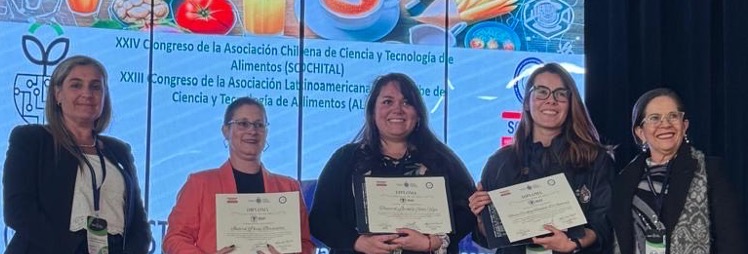
The awardees were:
- Indira Pérez Bermúdez, PhD student in Food Engineering at the Universidad del Bío-Bío.
Project title: Ultrasound as a separation technique in block freeze concentration applied to peppermint (Mentha piperita L.) infusion (poster presentation). - María Carolina Betancur D’Ambrosio, PhD student in Agro-Food Sciences at the Pontificia Universidad Católica de Valparaíso.
Project title: Microencapsulation of Chilean hop (Humulus lupulus L.) extract by spray drying for application in commercial yogurt (poster presentation). - Liz Ríos Duarte, PhD student in Chemical Sciences at the Universidad Nacional de Asunción.
Project title: Effect of nisin on the microbiological and sensory stability of the “sopa paraguaya” dough (oral presentation). - Tamara Solís Vega, PhD student in Biotechnology at the Pontificia Universidad Católica de Valparaíso and Universidad Técnica Federico Santa María.
Project title: Study of protein hydrolysate production from reineta fish waste and its evaluation as a potential biofertilizer (oral presentation).
Thank you also to the awards committee for reviewing the many applications from young researchers (Sara Valdez, Rommy Zuniga, Magda Pinzon, Pedro Valencia and Alejandra Medrano).
Food for Tomorrow: Science, Technology and Innovation for Sustainable and Healthy living was the focus of the 23rd Congress of the Latin American and Caribbean Association of Food Science and Technology (ALACCTA 2025) and the 24th Congress of the Chilean Association of Food Science and Technology (Sochital 2025). ALACCTA, as the regional grouping of IUFoST for Central and South America has a rich history of collaboration in the Union, including numerous joint scientific meetings, regulatory workshops and, of course, the IUFoST World Congress held in Brazil, which was a spectacular success.
IUFoST President Samuel Godefroy offered a welcome to the congress and numerous colleagues in IUFoST took part, including Professor Alejandra Medrano, IUFoST Board member and Dr. Susana Socolovsky, President of the Argentine Association of Food Technologists and IAFoST Fellow.
|
The ALACCTA Roundtable was chaired by Lorena Galante Jimenez of the Chilean Agency for Food Safety and Quality (ACHIPIA) on the subject of Towards a new food classification and included three talks: Talk 1: “Ultra-processed foods, nutrition, and health: limitations and contradictions,” Dr. M. Carmen Vidal Carou, Professor of Nutrition and Food Science. Director of the Food Campus at the University of Barcelona, Spain Talk 2: “Global regulators and the NOVA classification: reasons behind its rejection in food policies,” Nutritionist Marcia Terra, Brazilian Society of Food and Nutrition, Brazil Talk 3: “How Food Processing and Formulation Shape the Nutritional Value,” Dr. Erich Windhab, Institute of Food Science and Nutrition, ETH Zurich, Switzerland, IAFoST Fellow. |
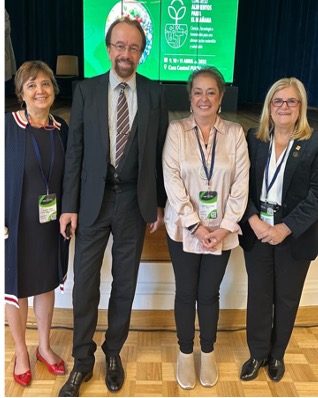 |
The International Dairy Federation (IDF) continues its partnership with IUFoST in presenting a joint webinar on Food Processing: Sustainability and Misconceptions on Monday, 28 April from 15.00 - 16.30 CEST.
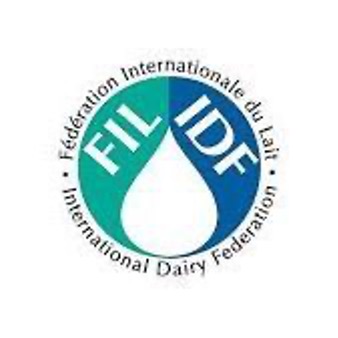 |
Food processing plays a critical role in ensuring food safety, nutrition, sustainability. However, misconceptions about processed foods have led to challenges in public perception.
The International Dairy Federation (IDF) and the International Union of Food Science and Technology (IUFoST) are hosting this webinar to explore the multifaceted role of food processing in today's food system, examining its necessity, impact on sustainability, and contribution to advancing the Sustainable Development Goals (SDGs). Key discussions will address common misconceptions and challenges surrounding processed and ultra processed foods. The session will introduce advancements in the classification of processed foods, drawing on the IUFoST Task Force approach to foster greater consensus and understanding. |
Speakers:
Marie-Claude Gentes – Welcome and Moderation: Chair of the IDF Standing Committee on Dairy Science and Processing Technology, and Research Scientist, Dairy Processing, Science and Technology Branch, Agriculture and Agri-Food Canada, Government of Canada
The historical origins and significance of dairy processing: Alan Kelly - Professor at University College Cork, Ireland, and representative in the IDF Science and Programme Coordination Committee
Misconceptions and challenges related to processed foods: Adam Drewnowski - Professor of Epidemiology, core faculty in the Food Systems, Nutrition and Health Programme, University of Washington, USA.
Advancements in improving processed food classification: Lilia Ahrné – Chair, IUFoST Scientific Council and Professor of Ingredient and Dairy Technology, Department of Food Science, University of Copenhagen, Denmark, followed by Q&A .
Join us! To register click here.
Artificial Intelligence (AI) for accelerated detection of pathogenic and spoilage microbes in Food Systems is the subject of the just-released IUFoST Scientific Information Bulletin (SIB).
“The rapid and accurate detection of microbial contamination is critical for ensuring food safety, preventing foodborne illness outbreaks, reducing economic losses, and minimizing food waste caused by spoilage. Traditional methods, such as culture-based assays and molecular techniques, are often labor-intensive and require days to detect trace-level microbial contamination. Recent advancements in artificial intelligence (AI) offer promising alternatives, providing faster, more accurate and potentially sensitive microbial detection solutions. This bulletin explores the challenges of current microbial detection techniques, the potential of AI technologies to improve microbial detection, and future directions for the integration of AI-based approaches into food systems.”
Artificial Intelligence (AI) for accelerated detection of pathogenic and spoilage microbes in food systems SIB was prepared by Prof. Hyeon Woo Park, Department of Food & Biotechnology, Korea University, Sejong 30019, Republic of Korea, Prof. Luyao Ma, Department of Food Science & Technology, Oregon State University, Corvallis, OR 97331, USA, and Prof. Nitin Nitin, Department of Food Science & Technology and Department of Biological & Agricultural Engineering, University of California-Davis, Davis, CA 95616, USA, on behalf of, and approved by, the IUFoST Scientific Council. IUFoST expresses its great appreciation to the authors for their work on the Union’s behalf.
Find this SIB and others in the series by clicking here.
Comments to Codex Committee on Food Additives, 55th Session
IUFoST comments to Agenda Items 4a, 4b, 5a, 5b, 6, 7, 8 and 9 were accepted by the Codex Committee on Food Additives, (CCFA55) at the meeting recently held in Seoul, Korea.
To read the IUFoST comments on the Agenda items, please click here.
Response to Codex Request for guidance on Food Allergen (Qualitative) Risk Assessment
IUFoST provided guidance and resource at Codex request on Food Allergen (Qualitative) Risk Assessment through its Canadian Adhering Body, PARERA, in the Institute of Nutrition and Functional Food, Laval University and Food Allergy Canada who produced the “Allergen Management Guidelines for Food Manufacturers”, published in 2022.
This resource, made available to the Codex Expert Committee, is available here.
Collaborating in CODATA with International Science Council (ISC) - IUFoST Young Scientist congress winner Professor Dachuan Zhang and and IAFoST Fellow Dr. John Rumble participated in the International Science Council’s CODATA Digital Data Standards Sustainability in Chemical Sciences Workshop held in Delitzsch Germany.
This international workshop forms part of a broader initiative to develop a coherent and sustainable infrastructure for chemical data, grounded in the principles of Findability, Accessibility, Interoperability, and Reusability (FAIR). It brought together experts across disciplines to explore community-led strategies, technical frameworks, and long-term governance models for digital chemical standards, with a focus on enabling scalable, trustworthy data exchange—particularly in the context of artificial intelligence (AI) and cross-disciplinary integration.
Two strategic proposals emerged from the workshop experience. The first is that continued participation in CODATA events provides a vital platform to advocate for food-specific data needs while ensuring alignment with broader chemical and biological standards. CODATA’s growing attention to food data—combined with our strong working relationship with key experts in an inter-disciplinary setting offers a unique opportunity to develop food data standards and influence global data frameworks.
The second proposal recommended by our IUFoST engagement in this meeting is that IUFoST should consider establishing a data committee to lead our strategic efforts in digital standardization and in establishing a robust, interoperable data infrastructure.
If you would like further information, please contact the IUFoST Secretariat secretariat@iufost.org, subject line CODATA.
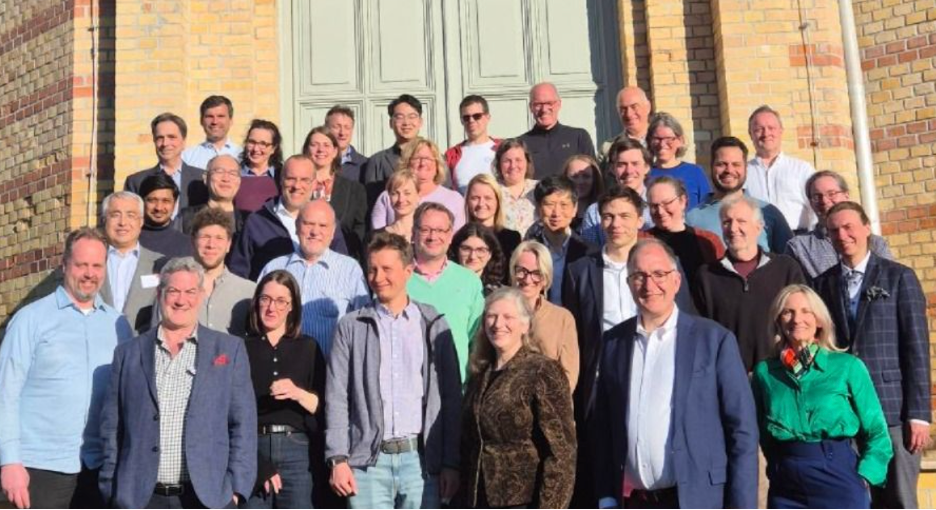
Next IUFoST Activities:
21 and 22 April
Sultanate of Oman - 7th International Food Safety Conference - IUFoST partnering
https://youtu.be/ixC91B_O9Ak?si=aDBw3Fevrmw78Iay
22 - 26 April
Beijing China - 16th International Food Safety Forum, organised by the Chinese Institute of Food Science and Technology (CIFST) and IUFoST.
28 April
Joint International Dairy Federation (IDF)/IUFoST online webinar Food Processing: Sustainability and Misconceptions from 15.00 - 16.30 CEST.
To register click here.
May - date to be announced
Associate of African Universities (AAU)/IUFoST online Roundtable and Competition - Food Processing Innovation.



